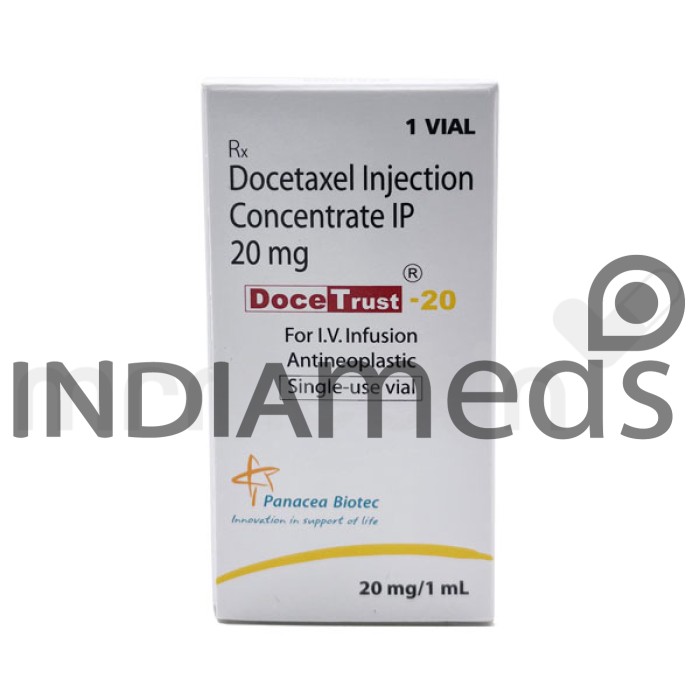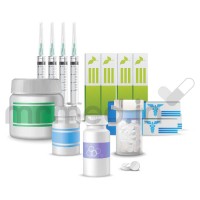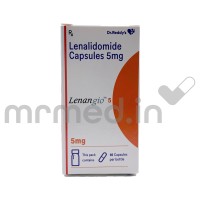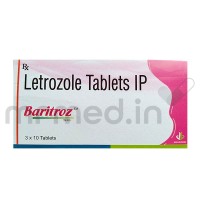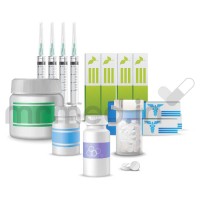Docetrust 20mg Injection belongs to the class of anticancer medications known as taxoids. It contains the active constituent Docetaxel indicated to treat breast, prostate, non-small cell lung, stomach, and head and neck cancer. Cancer is a disease in which cells multiply in an uncontrolled and abnormal manner. This chemotherapy medication is used alone or in combination with other anticancer medicines.
The common side effects that are likely to be associated with Docetrust 20mg Injection are dizziness, headache, fever, infections, loss of appetite, sleeping trouble, joint or muscle pain, eye problems, weight loss, tiredness, dry mouth, reduced blood pressure, hair loss, etc. Inform your doctor if any of these side effects disturb or persist in you.
Inform your doctor if you are allergic to Docetrust 20mg Injection and its ingredients. Before taking this medication, you must inform your physician if you have kidney and heart problems, vision problems, epilepsy, or alcohol addiction. It is contraindicated in patients with very few white blood cells or severe liver diseases. Ensure to inform your physician about all the medicines, including supplements and herbal medicines, that you are taking before starting Docetrust 20mg Injection treatment. Use effective birth control during the treatment and at least six months after the last dose.
- Non-small cell lung cancer
- Breast cancer
- Stomach or gastric cancer
- Prostate cancer
- Head and neck cancer
Therapeutic Effects of Docetrust 20mg Injection
Pregnancy
It is unsafe to use during pregnancy as it may cause harmful effects on the unborn baby. Women with childbearing potential should use effective contraceptives during treatment and six months after the final dose.
Breast Feeding
It is not recommended to breastfeed during the treatment with Docetrust 20mg Injection and for one week after the last dose.
Lungs
Inform your physician if you have any lung problems before the treatment with Docetrust 20mg Injection.
Liver
Docetrust 20mg Injection is contraindicated in patients with severe liver disorders. Before being treated with this Injection, your doctor may advise you for blood tests to check your liver functioning.
Alcohol
It is unsafe to consume alcohol while taking Docetrust 20mg Injection as it may cause increased dizziness and drowsiness.
Driving
Do not drive or operate heavy machines that impair your ability, as it contains alcohol. Consult your physician for more advice.
Serious:
- Severe allergic reactions
- Severe fluid retention
- Severe skin problems
- Swelling of the small intestine and colon
Common:
- Headache, dizziness
- Fever, infections
- Low blood cell count
- Loss of appetite
- Trouble sleeping
- Joint or muscle pain
- Alteration in the sense of taste
- Eye problems, bleeding from the nose
- Nausea, vomiting
- Diarrhea, constipation
- Abdominal pain
- Hair loss, change in color of your nails
- Change or absence of menstrual period
- Weight loss
- Tiredness
- Dry mouth
- High blood sugar
- Decreased blood pressure, rapid heartbeat
Yes, Docetrust 20mg Injection is a powerful chemotherapy medication because it contains the active ingredient Docetaxel, which is known to kill cancer cells with a rapid rate of growth.
Docetrust 20mg Injection is a chemotherapy medication that may ease prostate cancer symptoms and help to treat prostate cancer.
Docetrust 20mg Injection should not be taken if you have severe liver disease, low white blood cell counts, or hypersensitivity reactions to this Injection and its ingredients.
No, The live vaccine may interact with Docetrust 20mg Injection. Hence, without consulting your healthcare provider, this medication should not be taken with any vaccinations.
No, Drinking alcohol should be avoided while taking Docetrust 20mg Injection as it may cause dizziness and drowsiness.
Molecule name: Docetaxel | Therapeutic class: Taxoids (Antimicrobule agents) |
Pharmacological class: Antitumor agents | Indications: 1. Non-small cell lung cancer 2. Breast cancer 3. Head and neck cancer 4. Stomach cancer 5. Prostate cancer |


